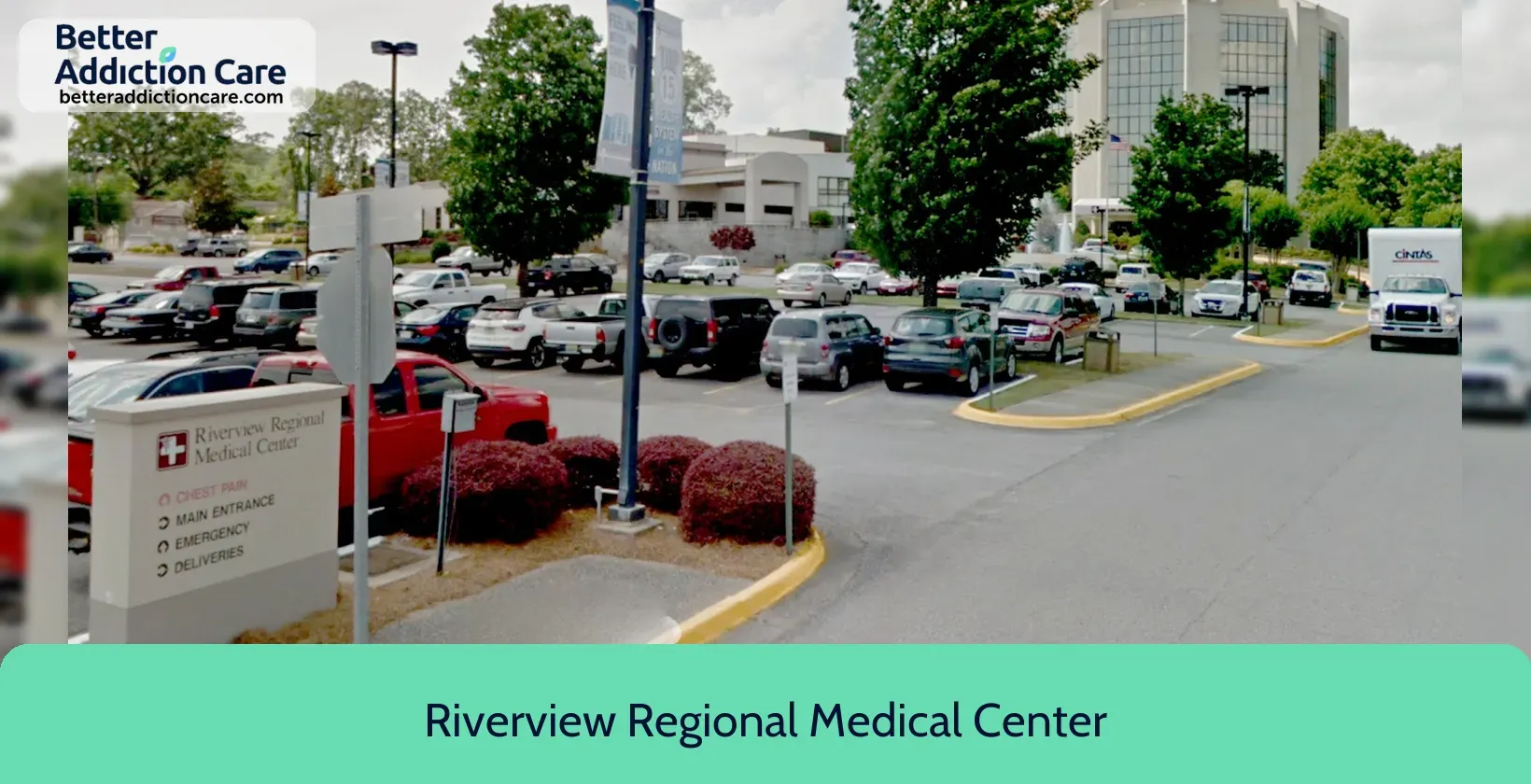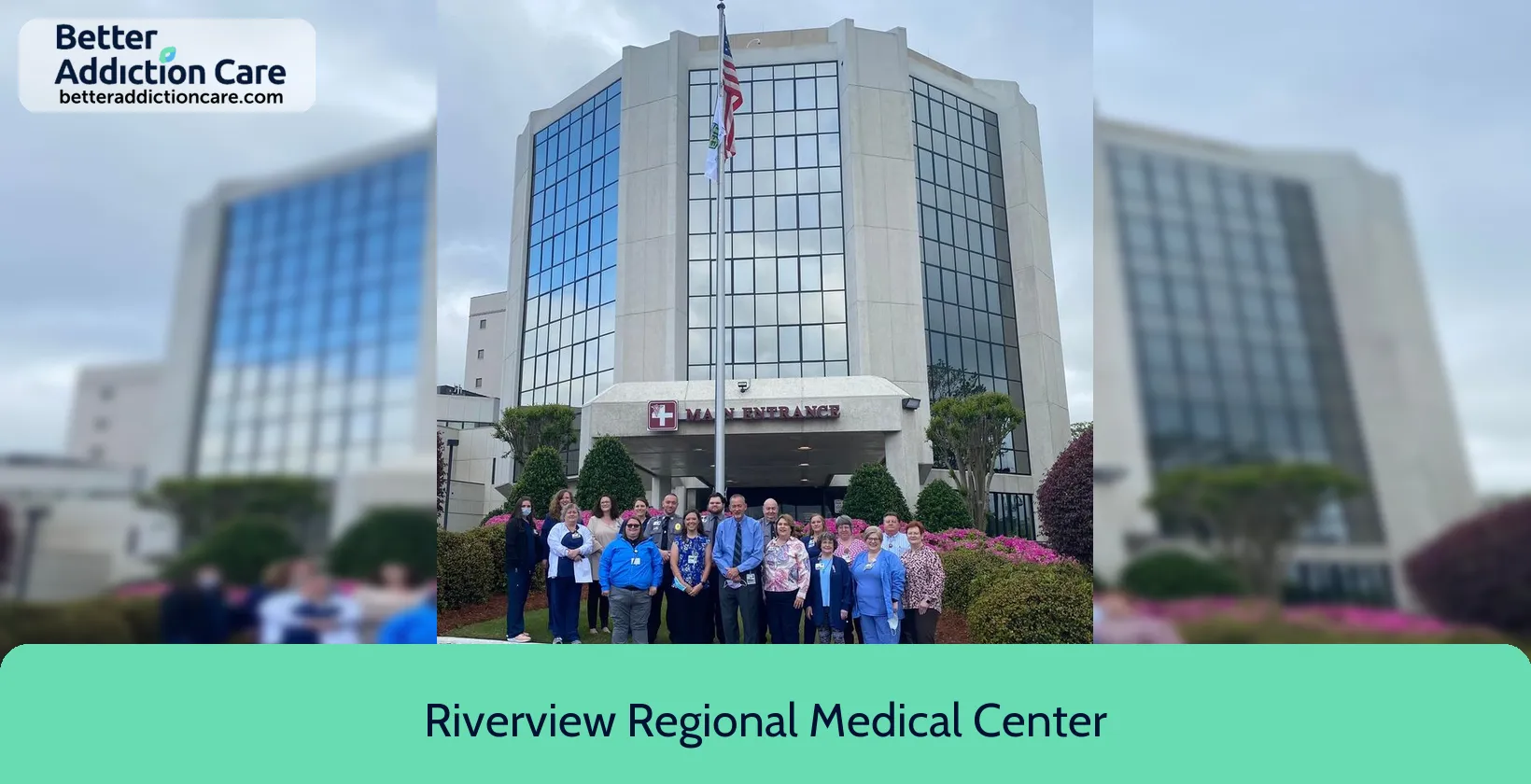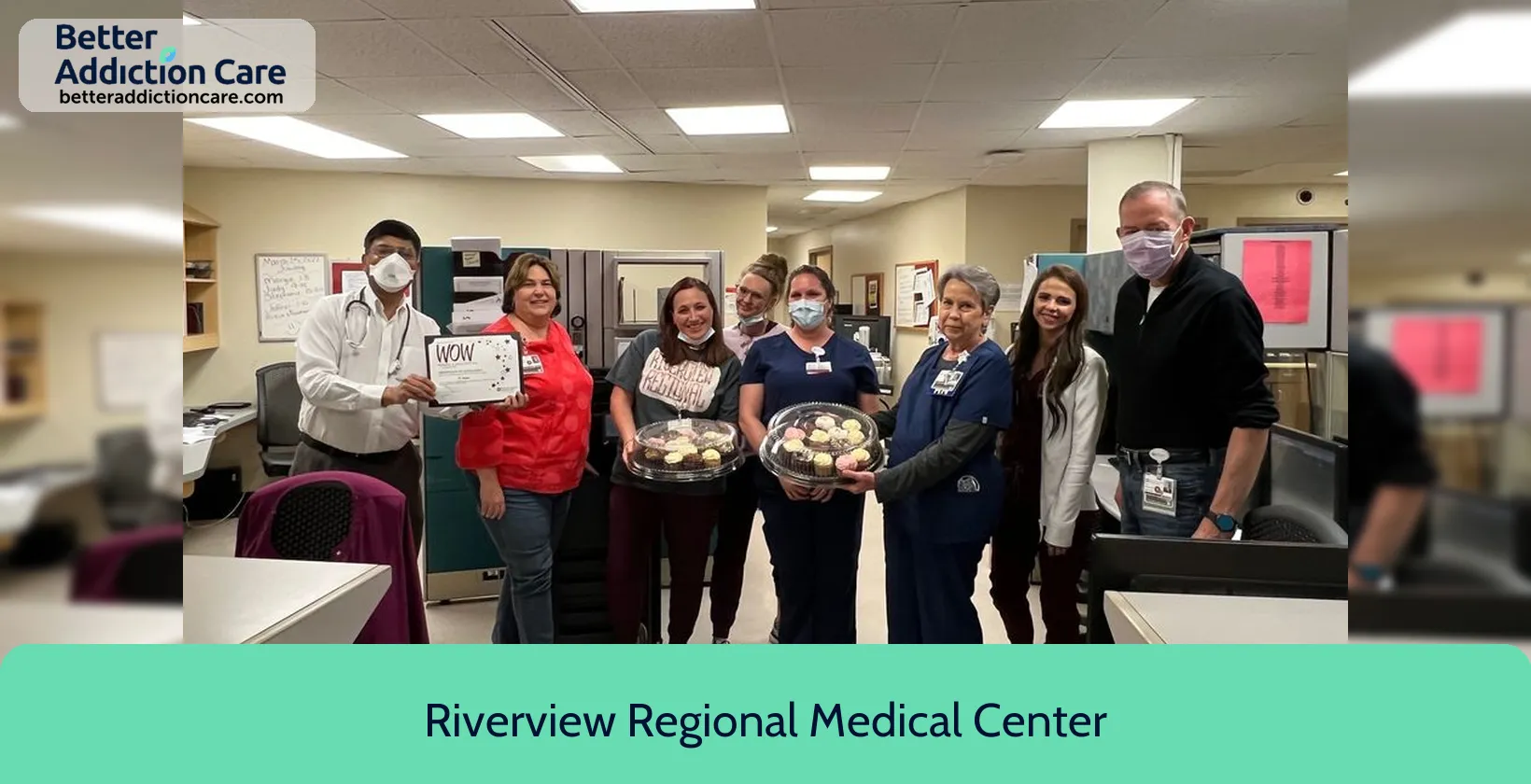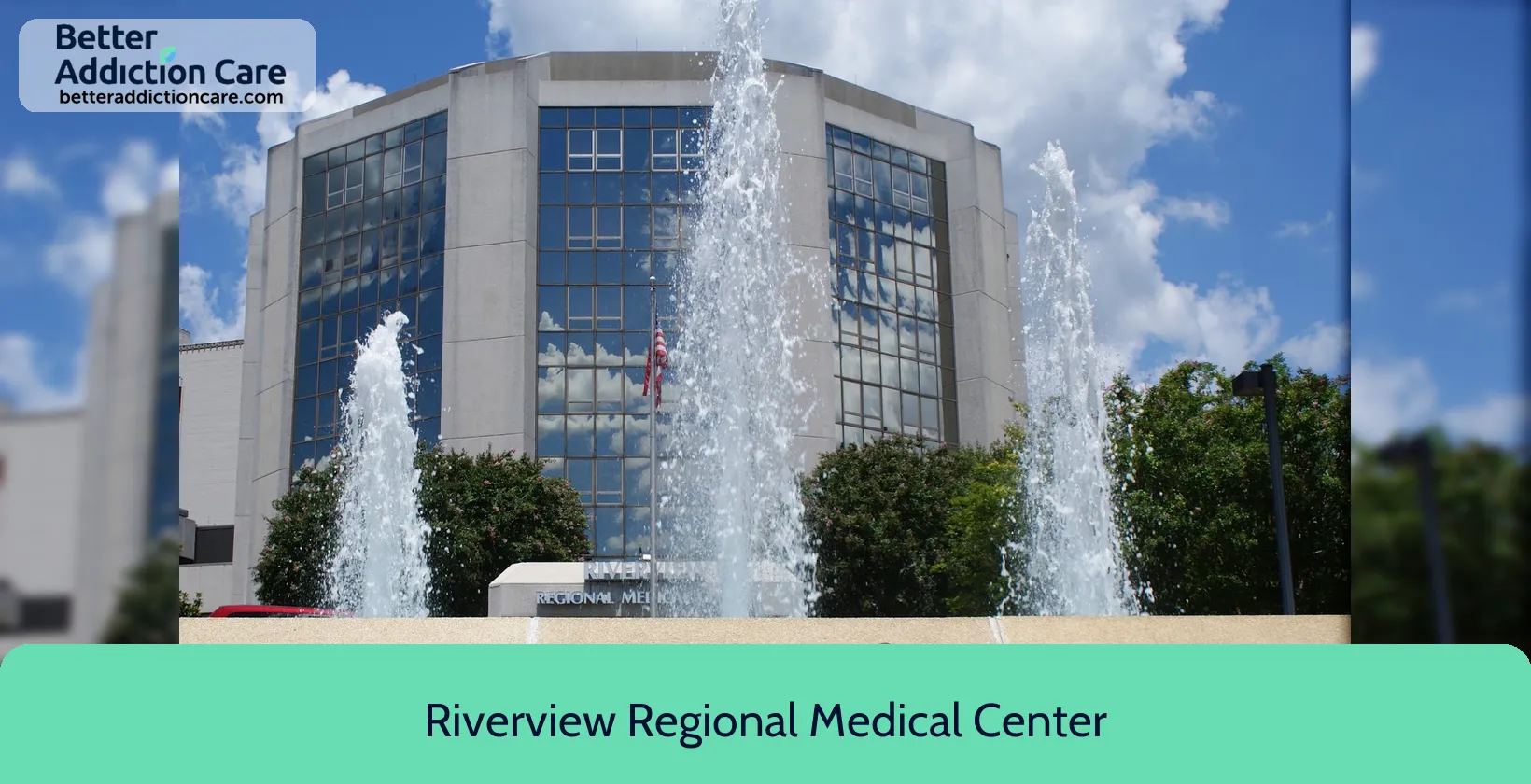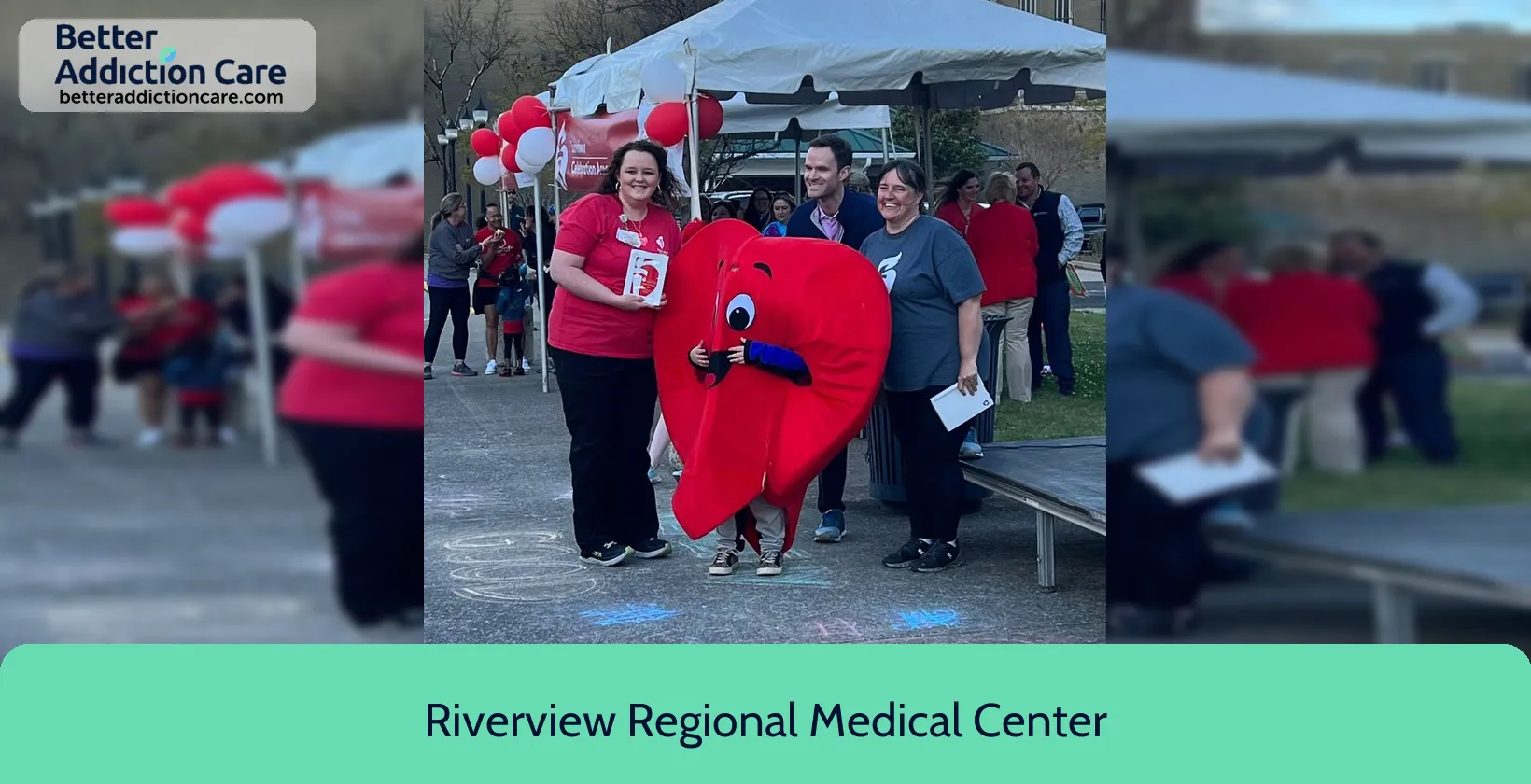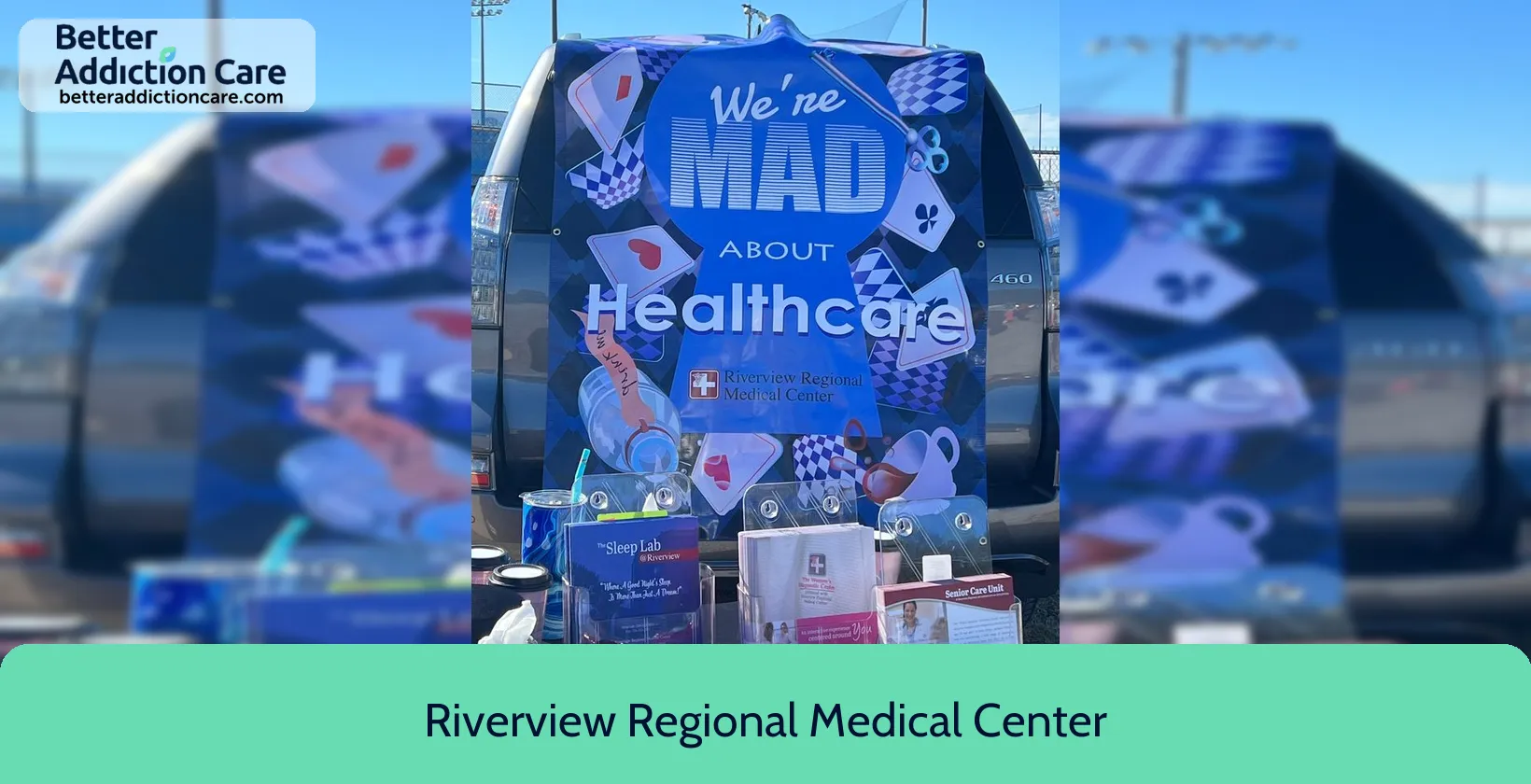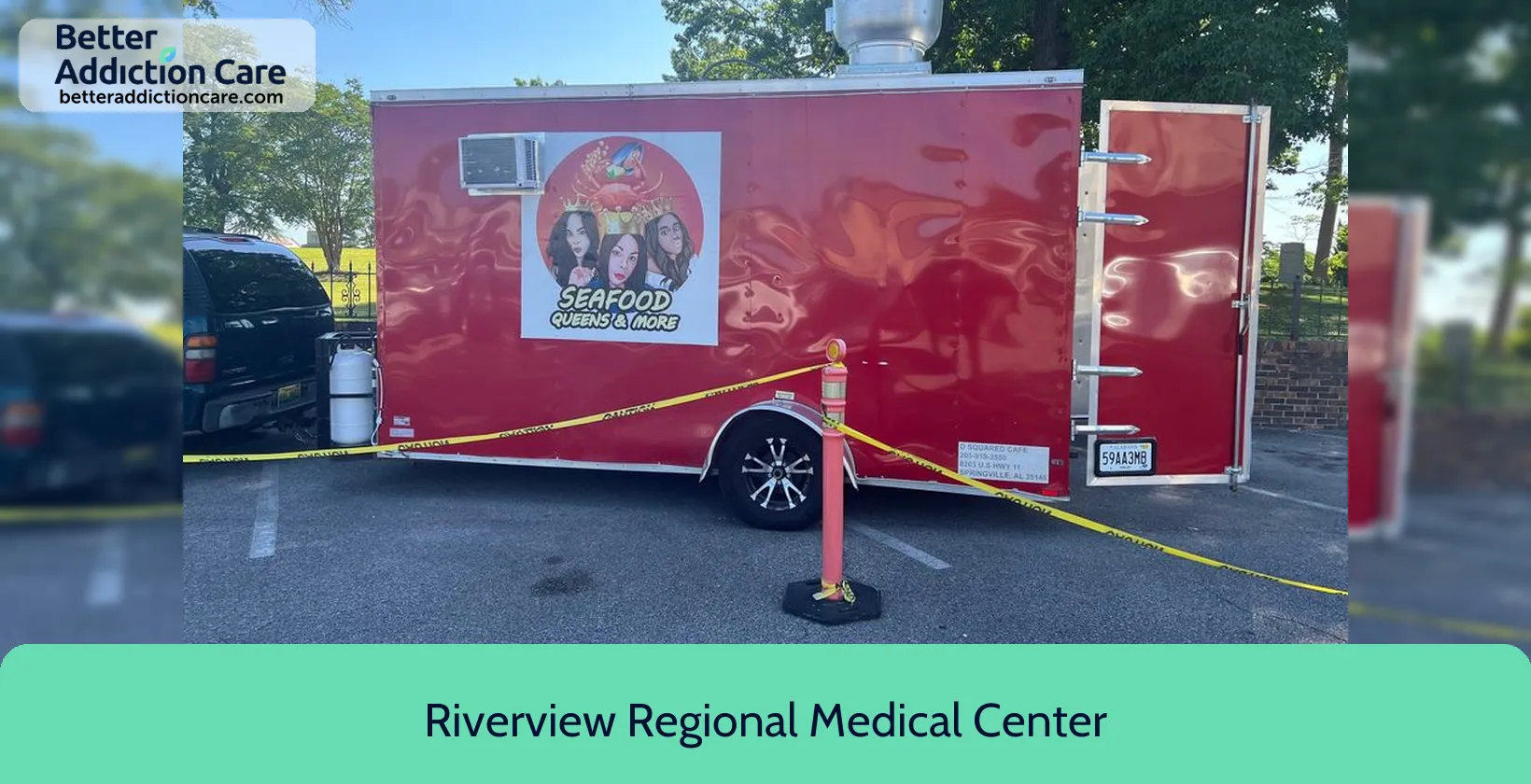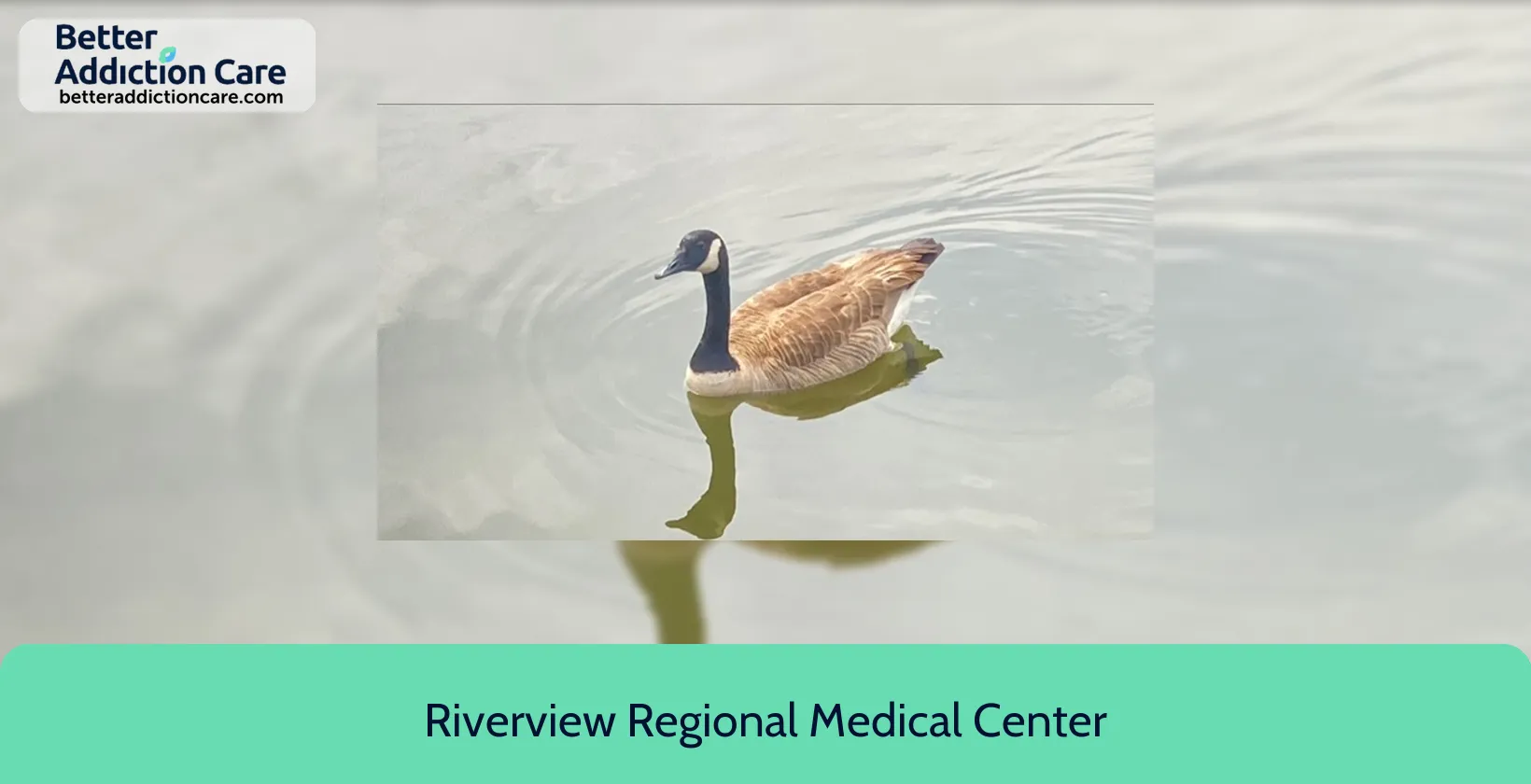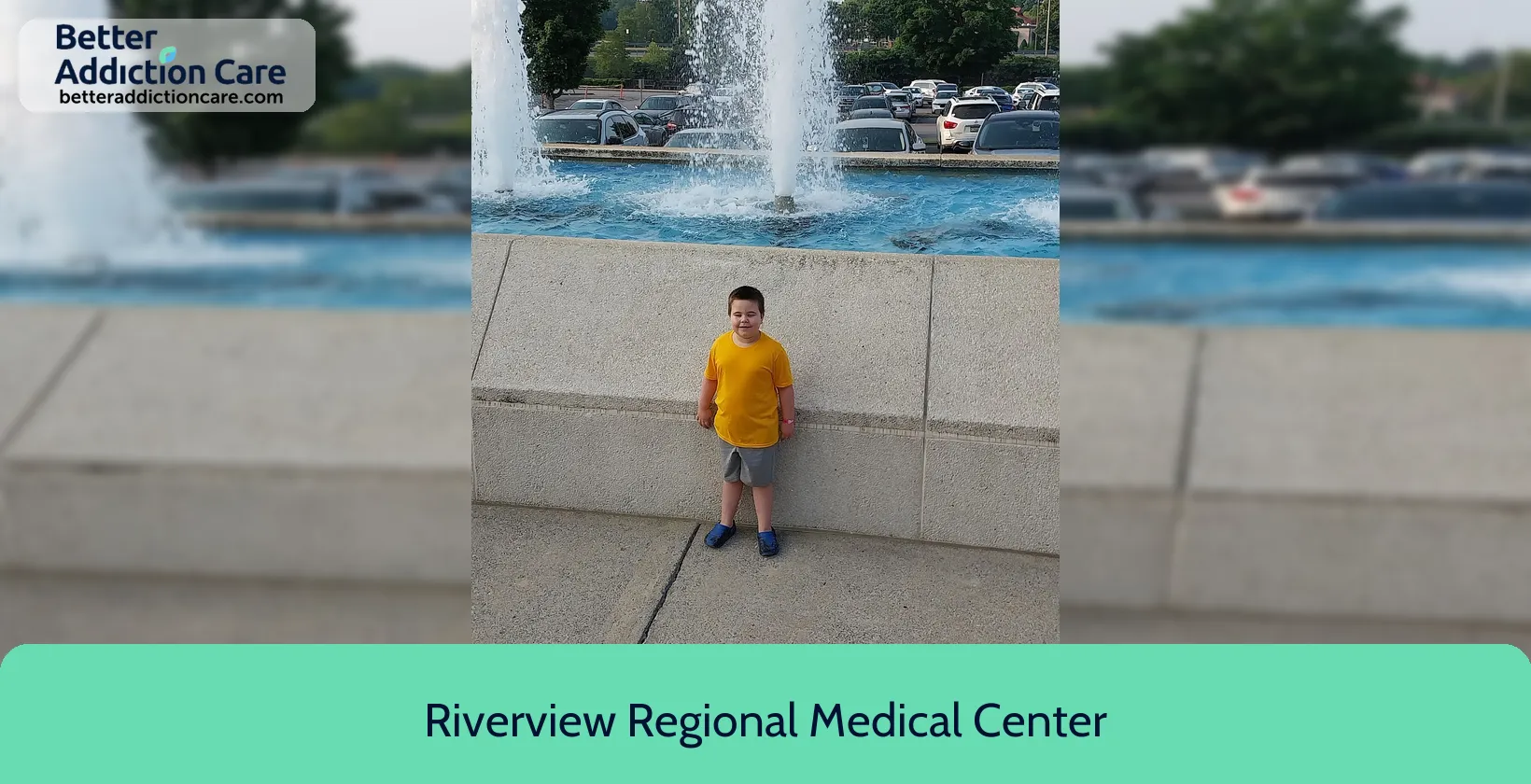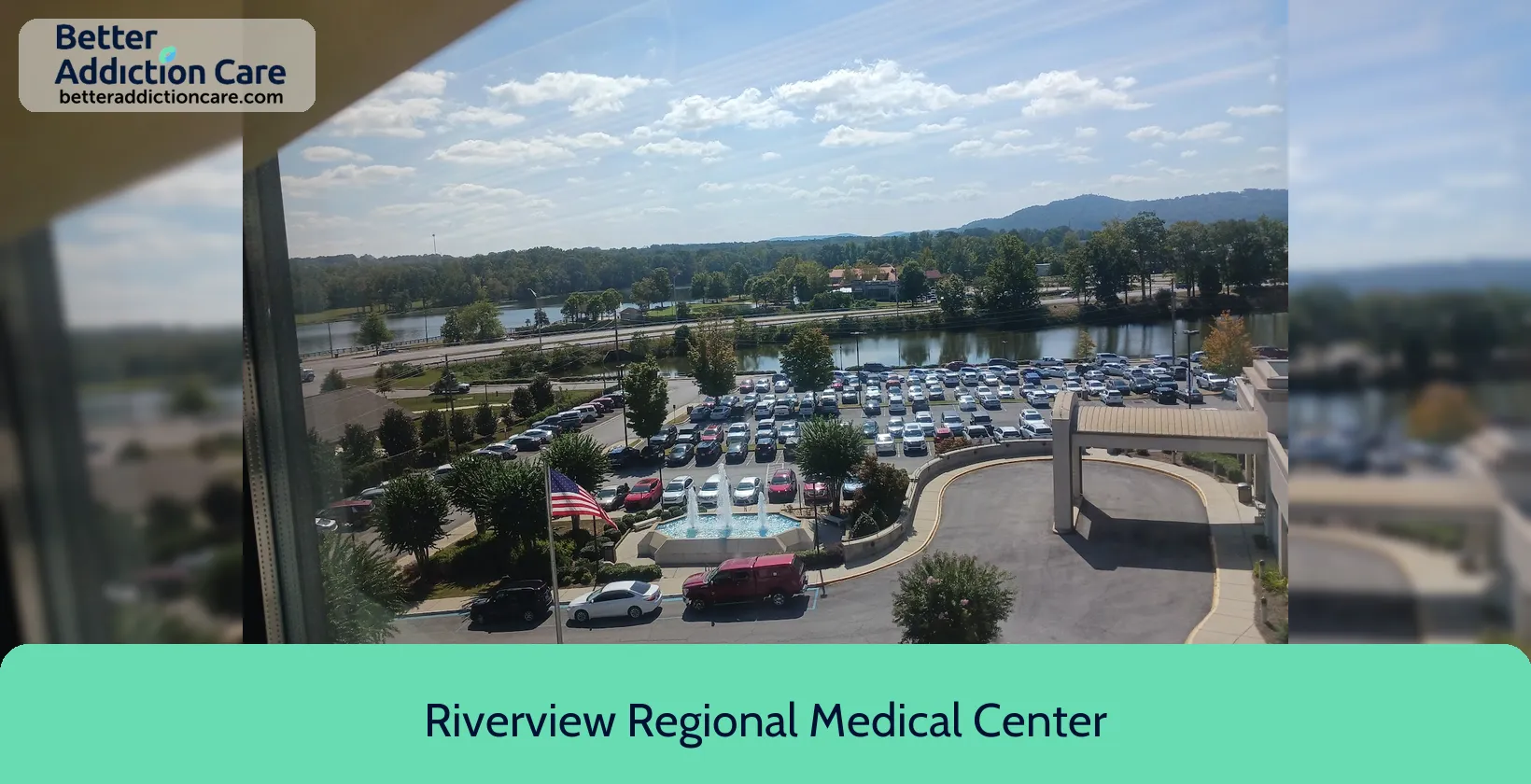Riverview Regional Medical Center
Overview
Riverview Regional Medical Center is a mental health treatment center for people seeking treatment near Etowah County. As part of their treatment modalities for recovery, Riverview Regional Medical Center provides individual psychotherapy, cognitive behavioral therapy, and activity therapy during treatment. Riverview Regional Medical Center is located in Gadsden, Alabama, accepting cash or self-payment for treatment.
Riverview Regional Medical Center at a Glance
Payment Options
- Cash or self-payment
- Medicaid
- Medicare
- State-financed health insurance plan other than Medicaid
- Private health insurance
Assessments
- Screening for tobacco use
- Comprehensive mental health assessment
- Comprehensive substance use assessment
- Outreach to persons in the community
- Screening for substance use
Age Groups
- Seniors or older adults
- Young adults
- Adults
- Seniors
Ancillary Services
- Intensive case management
- Case management service
- Chronic disease/illness management
- Diet and exercise counseling
- Integrated primary care services
Highlights About Riverview Regional Medical Center
7.36/10
With an overall rating of 7.36/10, this facility has following balanced range of services. Alcohol Rehabilitation: 8.00/10, Drug Rehab and Detox: 7.85/10, Insurance and Payments: 6.00/10, Treatment Options: 7.58/10.-
Alcohol Rehabilitation 8.00
-
Drug Rehab and Detox 7.85
-
Treatment Options 7.58
-
Insurance and Payments 6.00
Accreditations
The Joint Commission:

The Joint Commission, previously known as JCAHO, is a nonprofit organization that accredits rehabilitation organizations and programs. Established in 1951, its mission is to enhance the quality of patient care and showcase excellence in healthcare delivery.
Treatment At Riverview Regional Medical Center
Treatment Conditions
- Alcoholism
- Mental health treatment
- Substance use treatment
Care Levels
- Hospital inpatient/24-hour hospital inpatient
- Hospital inpatient detoxification
- Aftercare
Treatment Modalities
- Individual psychotherapy
- Cognitive behavioral therapy
- Activity therapy
- Substance use disorder counseling
- Trauma-related counseling
Ancillary Services
Languages
- Sign language services for the deaf and hard of hearing
Additional Services
- Pharmacotherapies administered during treatment
- Mentoring/peer support
- Breathalyzer or blood alcohol testing
Special Programs
- Clients with co-occurring mental and substance use disorders
- Veterans
- Active duty military
- Members of military families
- Criminal justice (other than DUI/DWI)/Forensic clients
Common Questions About Riverview Regional Medical Center
Contact Information
Read our Most Recent Article About Drug Addiction
DISCLAIMER: The facility name, logo and brand are the property and registered trademarks of Riverview Regional Medical Center, and are being used for identification and informational purposes only. Use of these names, logos and brands shall not imply endorsement. BetterAddictionCare.com is not affiliated with or sponsored by Riverview Regional Medical Center.
